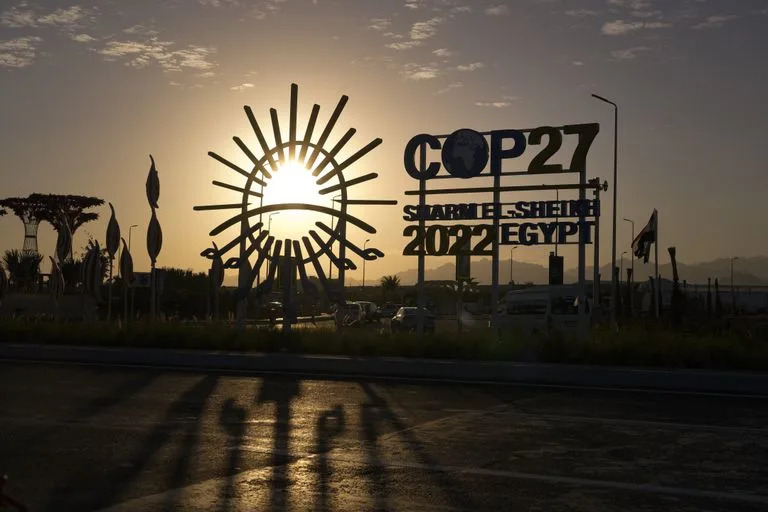Since the start of the UN climate conference COP27 held in the city of Sharm el Sheikh, Egypt has been the focus of criticism for its management of this key event for the future of the planet.
After arduous negotiations, COP27 agreed to create a loss and damage fund for the countries most vulnerable to global warming.
The poor and developing countries had been claiming this fund for three decades, since historically they have hardly contributed to global warming, but they are the ones that suffer the most from its consequences.
Although many delegates expressed their “hope” regarding the creation of such a fund, they also admitted their “disappointment” at the lack of progress in reducing greenhouse gas emissions.
At each COP there is a tacit agreement for the host country to set aside its national interests in order to reach a consensus agreement more or less approved by all.
But this year, some observers criticized that Egypt, an important diplomatic ally of the Gulf oil and gas states and Russia, was not a neutral arbiter.
“We are fair, impartial and transparent,” defended the Egyptian president of COP27, Foreign Minister Sameh Chukri.
“If there were mistakes, there was no bad intention behind it, we did everything in the interest of the negotiations,” he added.
Hydrocarbon pressure groups
“The influence of the fossil energy industry was everywhere,” criticized Laurence Tubiana, architect of the 2015 Paris agreement.
According to the NGOs, COP27 welcomed 25% more oil and gas lobbyists than COP26 in Glasgow, that is, more than all the delegates from the Pacific islands, on the front lines of climate change.
“The Egyptian presidency produced a text that clearly protects the oil and gas states and the fossil fuel industry,” Tubiana continued.
The final document does not mention any output of hydrocarbons, which are the main responsible for greenhouse gas emissions and, therefore, for global warming.
Egypt “put its national interests first and was not a transparent mediator,” judged Alden Meyer of the E3G think tank.
For this expert, who has been attending all the COP conferences for 27 years, Sharm el Sheikh did not host a climate summit but a “hydrocarbon industry show”.
In a harsh speech, European Commission Vice President Frans Timmermans said he was “disappointed” at the lack of ambition to limit global warming to 1.5°C above pre-industrial levels.
“What we have before us is not enough. It does not bring the added efforts needed for major emitters to step up and accelerate their emissions cuts,” he criticized.
The British Alok Sharma, president of the COP26, detailed for his part a list of proposals on the exit from fossil fuels and the reduction of emissions that were not reflected in the final text. They were also not in the initial Egyptian proposals, he said.
“No transparency”
Before the final marathon, Egypt was also at the center of criticism for the logistics of the event.
Guests complained about a lack of water, overpriced snacks, poor access for the disabled, and close surveillance deemed “unnecessary” at best and dangerous at worst.
Egypt quickly resolved logistical issues but did not change monitoring protocols, a recurring theme at climate conferences.
Negotiators were on edge until the last minute waiting for the next surprise. “I have never seen anything like it: there is no transparency, we cannot foresee anything, it is chaos,” said one of them.
Frustration reached a fever pitch in the last few hours, when Egypt refused to distribute the working paper it had submitted on the sensitive issue of “loss and damage”.
In the case of the European Union, Timmermans was called alone, in the middle of the night. He did not obtain a copy and could only read the proposed text to inform the 27 EU countries, community sources said.

